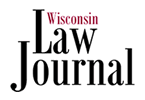Written by Tracy L. Coenen, CPA, CFF

With this change, Rule 26 dictates that the draft reports of experts will no longer be discoverable, and will be protected under the work product doctrine. In addition, communications between the party’s attorney and the expert witness will be protected, except communications that: relate to the expert’s compensation; identify facts or data provided by the attorney and considered by the expert in forming opinions; or identify assumptions provided by the attorney and relied upon by the expert in forming opinions.
If an expert witness is not providing a report, but will be giving testimony at trial, the new rule requires a summary disclosure. This disclosure must identify the subject matter on which the witness will present evidence and a summary of the facts and opinions to which the witness will testify.
Burden Eased
For expert witnesses and attorneys, the rule regarding draft reports is obviously a welcome change. No longer must experts take painstaking care to avoid generating or sharing with counsel a draft of a report. Additionally, the communications between experts and attorneys will many times be protected, with the above exceptions.
The fact is that attorneys have gone to great lengths to protect the draft reports of experts, and opposing counsel has gone to great lengths to get copies of the draft reports.
Practically speaking, this was a waste of time and money for all parties. Instead of focusing on the opinions of the expert in the final report, counsel was spending time trying to uncover preliminary opinions and related communications, which are often of limited value.
Facts or Data
Under the old rule, experts were required to disclose “data or other information” considered in forming their opinions. This language caused problems because “other information” was not precise enough to limit what was discoverable. The new rule specifies disclosure of only “facts or data” considered. Although this appears to be a minor change, it brings greater clarity to what is discoverable.
As a practical matter, an expert should always be prepared to disclose any facts, data, or substantive information used in forming their expert opinions. Whether these items must actually be disclosed is a point that can be debated between the attorneys, but the expert should be careful to preserve these items in the event that they are required to be produced.
In Practice
This change should promote better and more efficient collaboration between attorneys and their experts. Many experts avoid the word “collaboration” because they do not want the appearance that the attorney had undue influence over their opinions. In reality, however, there is collaboration between attorneys and experts as the attorney generally wishes to direct the expert’s work toward specific issues or litigation strategies.
As an expert, the process of examining evidence, forming opinions, and generating a written report has been made easier. The expert can feel free to communicate with the attorney, share draft report language, and work together on an expert witness project without silly formalities designed to prevent creating discoverable material.
The days of reading paragraphs of reports over the phone, rather than e-mailing rough drafts, are over. Meeting in order to look at a report on a laptop computer, rather than printing it out, is also a thing of the past. Practically speaking, this rule change makes it easier to finalize an expert report.
The change should save money for clients, as well. In some cases, attorneys were hiring consulting experts and reporting experts for the same case. The consulting experts were retained to help develop the case strategy, and the reporting experts would avoid the pitfalls related to disclosure of communications and draft reports. Now, one expert can be retained and preliminary discussions and development of litigation strategy can be protected as work product.
Experts must be careful, however, that this change does not lead to reckless behavior. Since some attorney-expert communications must still be disclosed, careful thought should be given prior to sending potentially damaging e-mails or other communications. An e-mail string the expert thought would be protected may end up being discoverable if it contains certain facts or data in it. Therefore, care should still be taken in communicating with the attorney.
Tracy L. Coenen, CPA, CFF is president of Sequence Inc., a forensic accounting firm with offices in Milwaukee and Chicago. She can be reached at 414-727-2361 or tracy@



